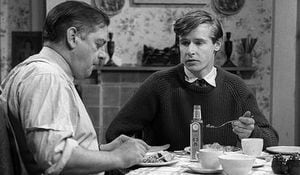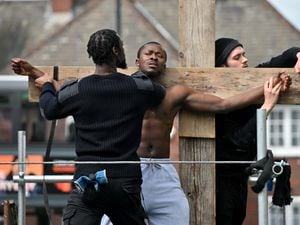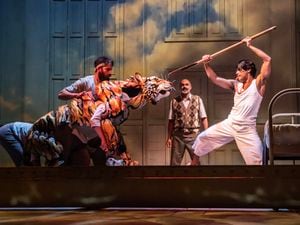Sixty years of show which some said would last for three weeks
Today, you would probably call it a ‘culture war’. But six decades on, the early episodes of Coronation Street seem eerily relevant to the present day.

Young, educated and slightly cocky, Ken Barlow had just returned from university and began to see his family, friends and neighbours in a different light.
Ken saw himself as enlightened, sophisticated, a man of the world with cosmopolitan tastes, He despaired at the insular, outdated attitudes of the proudly working-class folk around him.
His father Frank, on the other hand, was a no-nonsense postman who thought Ken ought to spend less time on protests and a bit more earning an honest crust. Frank even thought it ok to have the milk bottle on the breakfast table.
It is 60 years this week since Tony Warren’s ‘kitchen sink’ drama began a 13-episode pilot run. Granada boss Sidney Bernstein had originally turned the show down, but was persuaded to give it a try by producer Harry Elton.
It seems many agreed with Bernstein’s initial assessment. Daily Mirror television critic Ken Irwin forecast that it would be dropped within three weeks.
After the broadcast of the first episode, the Mirror concluded: “The programme is doomed from the outset, for there is little reality in this new serial, which apparently, we have to suffer twice a week.”
But while the critics may not have been impressed, ordinary folk – the Frank Barlows of this world – couldn’t get enough of it.
It wasn’t Cathy Come Home, it didn’t push new boundaries, But it did capture the social revolution going on in Britain in the 1960s, and its effect on traditional close-knit communities in provincial towns. Grumpy old harridans like Ena Sharples would harrumph in the Rovers snug at the racy antics of Elsie Tanner. Outspoken young pacifist Ken would brawl with burly war veteran Len Fairclough. Crusty old-timers like Jack and Annie Walker struggled to understand the flighty ways of their adoptive daughter Lucille Hewitt.
Describing it as true to life would be a stretch too far though. In 60 years, this sleepy-looking neighbourhood has been the scene of 181 deaths. Its murder rate is four times that of the most dangerous place in the real world, the Mexican City of Los Cabos.
Some 32 characters have been murdered, a rate of one every two years. And 38 have died from heart attacks, suggesting Betty’s hotpots are perhaps not the healthiest dish around.
Fire safety also seems to be something of an issue. The Rovers Return has caught fire twice, the clothing factory three times. Not to mention the occasional car blowing up, and the odd property developer with a sideline in mass murder burning down his mother-in-law’s home. Insurance premiums must be eye-watering.
Weatherfield marriages tend not to be enduring, either. Steve McDonald tops the matrimonial league table, having been married seven times, although at 46, he still has plenty of time yet. Gail Platt has been married six times, while veteran lotharios Ken Barlow and Mike Baldwin have managed four marriages each. Ken has the edge over Mike, though, with 27 girlfriends to Mike’s 25. Bigamy also seems to be quite popular, with both Arnold Swain and Peter Barlow both giving it a go.
The show has turned a number of West Midland actors into household names, the best known being Sue Nicholls and Johnny Briggs.
Walsall-born Nicholls has played brassy hairdresser Audrey Roberts for 41 years, first arriving at daughter Gail’s wedding in 1979. Former Stourbridge resident Briggs played hard-nosed businessman Mike Baldwin from 1976 to 2006, effectively replacing shady bookie Dave Smith as the resident wide boy. In the late 1990s West Bromwich-born Matthew Marsden played grease monkey Chris Collins, while more recently actor Ian Bartholomew – who lives near Oswestry – has played arch-villain Geoff Metcalfe.
The irony, of course, is that Ken Barlow, the angry young man who couldn’t wait to get away from Coronation Street, is still there, having been ever-present throughout the show’s long run. What would the young Ken have made of that?




